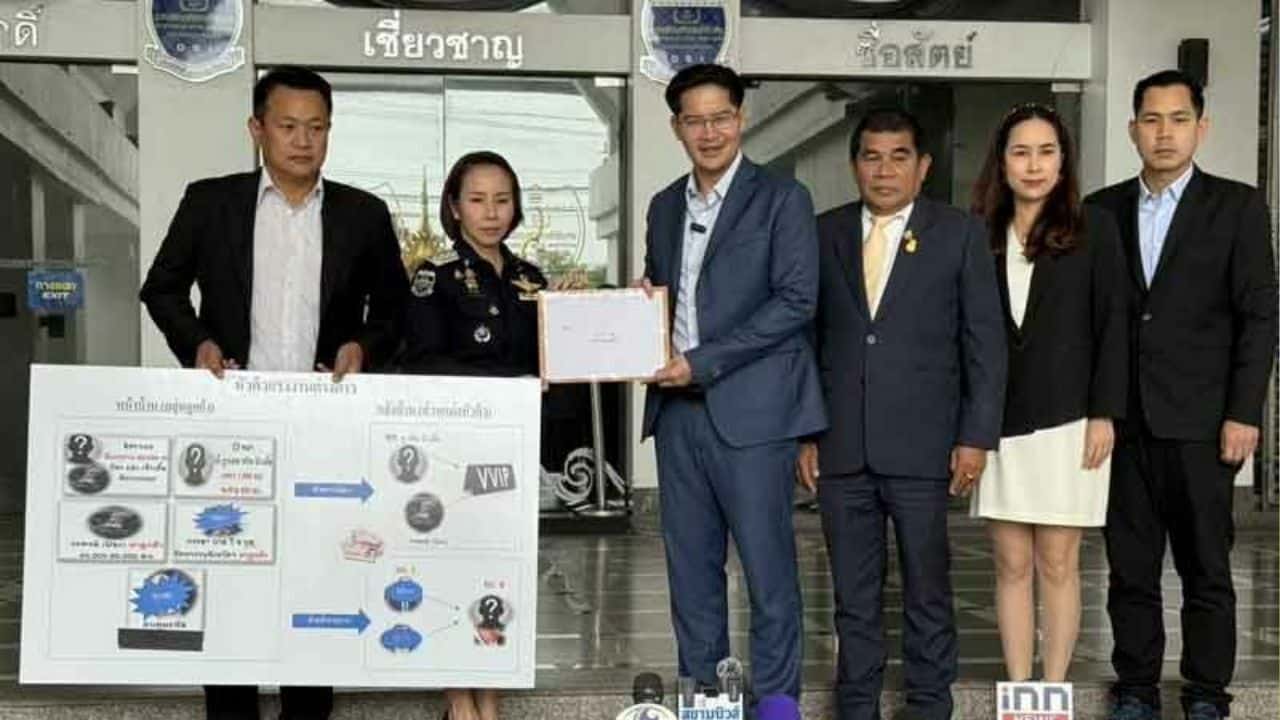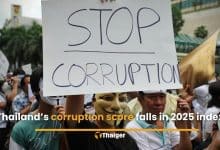Thai officials face scrutiny over foreign worker corruption claims
Regional labor exploitation claims spark push for cross-border corruption probe

An investigation into corruption involving Cambodian, Myanmar, and Laotian workers was lodged yesterday, July 21, at the Department of Special Investigation (DSI) on Chaeng Watthana Road.
Mongkolkit Suksintharanon, chairman of the Anti-Corruption Network Foundation, accompanied by Yoswarit Chooklom, known as Jeng Dokjik, submitted a letter and evidence to Major Yutthana Praedam, Director General of the DSI, where Arunsee Wichawut, head of the Special Case Management Division, accepted the complaint.
Mongkolkit explained that previously, a group of employers had filed a complaint with the DSI, prompting a financial investigation focused on the Cambodian name list only.
According to a Cabinet resolution on September 24 last year, the stay of foreign workers in Thailand was extended to February 13 and later extended for six more months to August 13. The largest number of workers are from Myanmar, with over two million registered in the system.
The issue raised by the employers involves the Cambodian name list. Other nationalities include approximately 94,000 Laotian and 3,000 Vietnamese workers.
A total of 2.4 million registered workers were allowed to register as per the Cabinet resolution of September 24 last year, allowing registration for illegal or self-arrived workers, adding about 1.2 million people. Of these, 40,000 to 50,000 registered retroactively, referred to as the retroactive registration of Myanmar workers.
Mongkolkit further elaborated on the Cambodian name list, revealing three main individuals: Es, Nai, and Boy. Nai and Boy are involved in Cambodian and Myanmar operations, with Es managing coordination between Cambodian and Thai governments.
If the country of origin does not approve the name list, it cannot proceed; therefore, 2,500 baht (US$77) is charged per Cambodian worker, totalling approximately 718 million baht (US$22 million).
The funds are split between senior Cambodian and Thai officials, with Thai officials not yet directly involved but linked through private entities, Pa Tia and Pong.
These people manage the funds to deliver bribes to political figures, as DSI investigates the potential involvement of these figures.

Concerning the Calling Visa fee, it is set at 500 baht (US$15) per head for 280,000 Cambodian workers, used for health checks and document processing.
If not paid, documents cannot be issued. Es coordinates the payment to Pa Tia and Pong, who manage the funds. Further investigation is required to determine if political figures or their associates are involved.
Regarding the Myanmar workers, the 2,500 baht (US$77) name list fee was initially collected but not implemented due to coordination issues with Myanmar’s government after a change in the labour minister.
As a result, 5 billion baht (US$154 million) intended for the fee remains undistributed. However, the 500 baht (US$15) Calling Visa fee still applies to 2 million Myanmar workers, totaling 1 billion baht (US$30 million).
For Myanmar workers outside the system, approximately 1.2 million must visit the Certificate of Identity (CI) centres, opening on August 1 in Samut Sakhon, Samut Prakan, Chiang Mai, and Surat Thani. A retroactive fee of 3,500 baht (US$308) applies to approximately 50,000 people.
Mongkolkit clarified an earlier mistake regarding the identity of a key figure, initially thought to be Mo but a female official with initials P, possibly named Piw.
The CI registration fee involves a split of 1,200 baht (US$37) between Myanmar and Thai police, with additional documented fees of 2,670 baht (US$82) per head, processed through 7-Eleven.
In September and October, registration for approximately 1 million illegal workers will occur, with funds for CI procedures already secured, including a 500 million baht (US$15 million) deposit for processing.
The investigation into foreign worker corruption involves government officials S and W, with the guidance of Mr. Beans. The Cambodian and Vietnamese cases are less significant due to smaller numbers. A recent DSI raid linked to S, an expert in Cambodian labour, highlights the involvement of multiple recruitment agencies.
Jeng Dokjik urged the media to monitor the situation closely, referencing past suspicious activities at the Ministry of Labour, reported KhaoSod.
He emphasised the economic damage and embarrassment caused by these corrupt practices, despite some individuals benefiting financially. The situation has left civil servants concerned about potential legal repercussions from political actions.

Latest Thailand News
Follow The Thaiger on Google News:


























